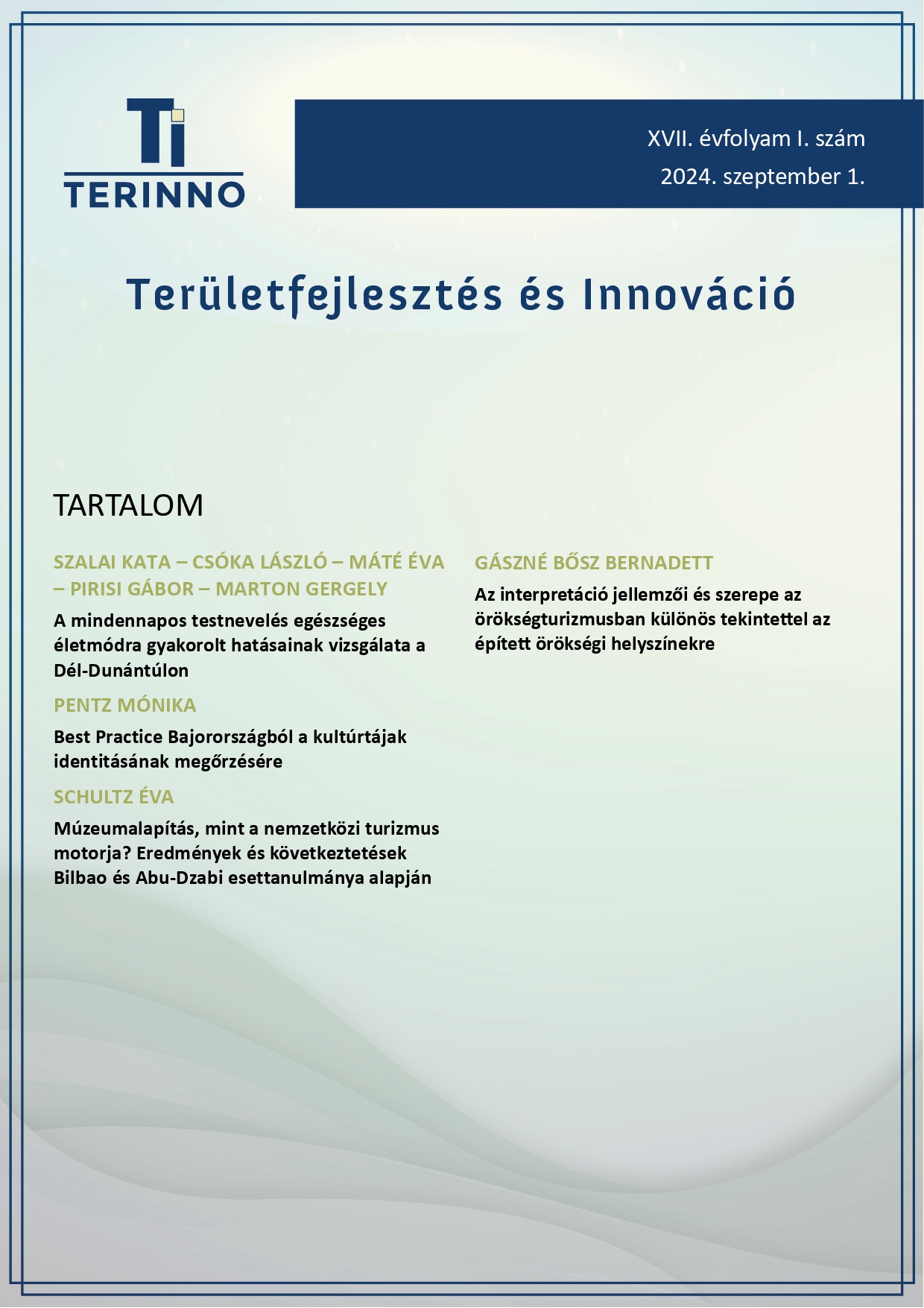The characteristics and significance of interpretation in heritage tourism, with a special focus on built heritage sites
DOI:
https://doi.org/10.15170/terinno.2024.17.01.04Keywords:
interpretation, heritage tourism, built heritage sitesAbstract
Monuments and heritage sites are integral parts of our shared past. They truly become a shared past, perceptible at the individual level, when people can use, learn about, and appreciate them. One way of utilizing and valuing these sites is through heritage tourism. The primary challenge of heritage tourism is the authentic reconstruction of the past in the present. For tourists, history becomes engaging through the lens of ordinary people with whom they can identify: how they once lived within historic walls, using tools that are no longer in use, and under socio-economic conditions that have since vanished. However, the most important aspect for tourists is what they themselves can experience today while visiting these sites. Authenticity is the bridge connecting historic buildings with heritage tourists. Experience is the key factor in the visitor's decision-making process. Historic environments offer a high promise of experience, providing an excellent setting for experiential interpretation.
Owing to the efforts of researchers and creative operators, a variety of interpretive tools are available to ensure that heritage sites rise to the challenge of offering authentic information while providing guest-focused experiential services. The development of experience-enhancing services tied to cultural attractions is a competitive advantage. Moreover, positive experiences reinforce the importance and value of heritage elements, thereby encouraging visitors to take an interest in their preservation. Effective interpretation, therefore, lays a solid foundation for sustainability.
This study examines the characteristics and impact of effective interpretation, with a particular focus on built heritage sites.

